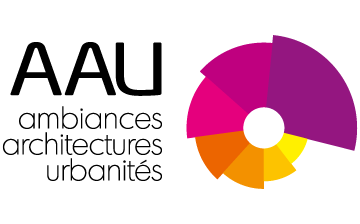La condition alter-urbaine, entre pratiques habitantes et imaginaires. Les territoires de Brest et Québec au quotidien.
The alter-urban condition, between inhabitants’ practices and imaginations. The Brest and Québec territories in daily life.
Florie Colin - Thèse de doctorat soutenue en 2020
Encadrement : Laurent Devisme et Daniel Le Couedic Géoarchitecture Université de Brest (co-encadrement)
Financement : Allocation doctorale du Ministère de la Culture / Funding: Doctoral grant – French Ministry of Culture
FR
Cette recherche s’intéresse aux habitants de maison dans le périurbain, autour de Brest, Québec et Nantes-Saint-Nazaire. L’enquête de terrain met en avant les paroles habitantes afin de décrypter des pratiques et des imaginaires concernant différents lieux du quotidien qui font système. Une combinaison de méthodes d’approche sociologique et ethnographique a été privilégiée, mêlant entretiens compréhensifs à domicile, observations et participation observante au sein d’une maisonnée québécoise. Au coeur des parcours résidentiels, le désir d’accession à la propriété d’une maison et de son jardin s’appréhende par les imaginaires et les expériences passées, actuelles et projetées. Les habitudes quotidiennes peuvent néanmoins être bouleversées par des déménagements ou autres événements survenant dans les parcours de vie, ou par des changements et évolutions des lieux environnants. Diverses échelles sont observées dans ces contextes : la maison, mais aussi différents lieux de vie pratiqués au quotidien entre ville, campagne et littoral. Les habitants considèrent souvent « tout avoir » à proximité. Au-delà de ce côté pratique, les diverses formes d’attachement à ces lieux sont mises en exergue, révélant ce que nous proposons de nommer une condition habitante alter-urbaine.
Mots-clés : condition habitante, entretiens compréhensifs, enquêtes ethnographiques, habitants, habitudes, imaginaires, maison, mobilités, modes de vie, paroles habitantes, périurbain, pratiques, quotidien, sociabilités, urbain diffus.
EN
This research focuses on inhabitants of houses in peri-urban areas around Brest, Québec and Nantes-Saint-Nazaire. The field survey carried out highlights the inhabitants’ words to decipher practices and imaginations regarding different places of their daily life. A combination of sociological and ethnographic methods is emphasised, connecting home-based comprehensive interviews, observation and observing participation within a Québec home. Among the residential journeys, the desire to own a property, a house with a garden, is apprehended through imaginations and past, current and projected experiences.
Everyday habits can nonetheless be disturbed by relocations, any other event happening in life, or by changes and evolutions of surrounding places. Different scales are observed in these contexts: the house and the different living areas practiced every day, between the city, the countryside and the coastline. The inhabitants often consider “having everything” nearby. Beyond this practical side, the different forms of attachment to these places are thus highlighted, revealing what we propose to call the alter-urban condition of inhabitants.
Keywords: inhabitants’ condition, comprehensive interviews, ethnographic surveys, inhabitants, habits, imaginations, house, mobilities, lifestyles, inhabitants’ words, peri-urban, practices, daily, sociabilities, diffuse urban.
